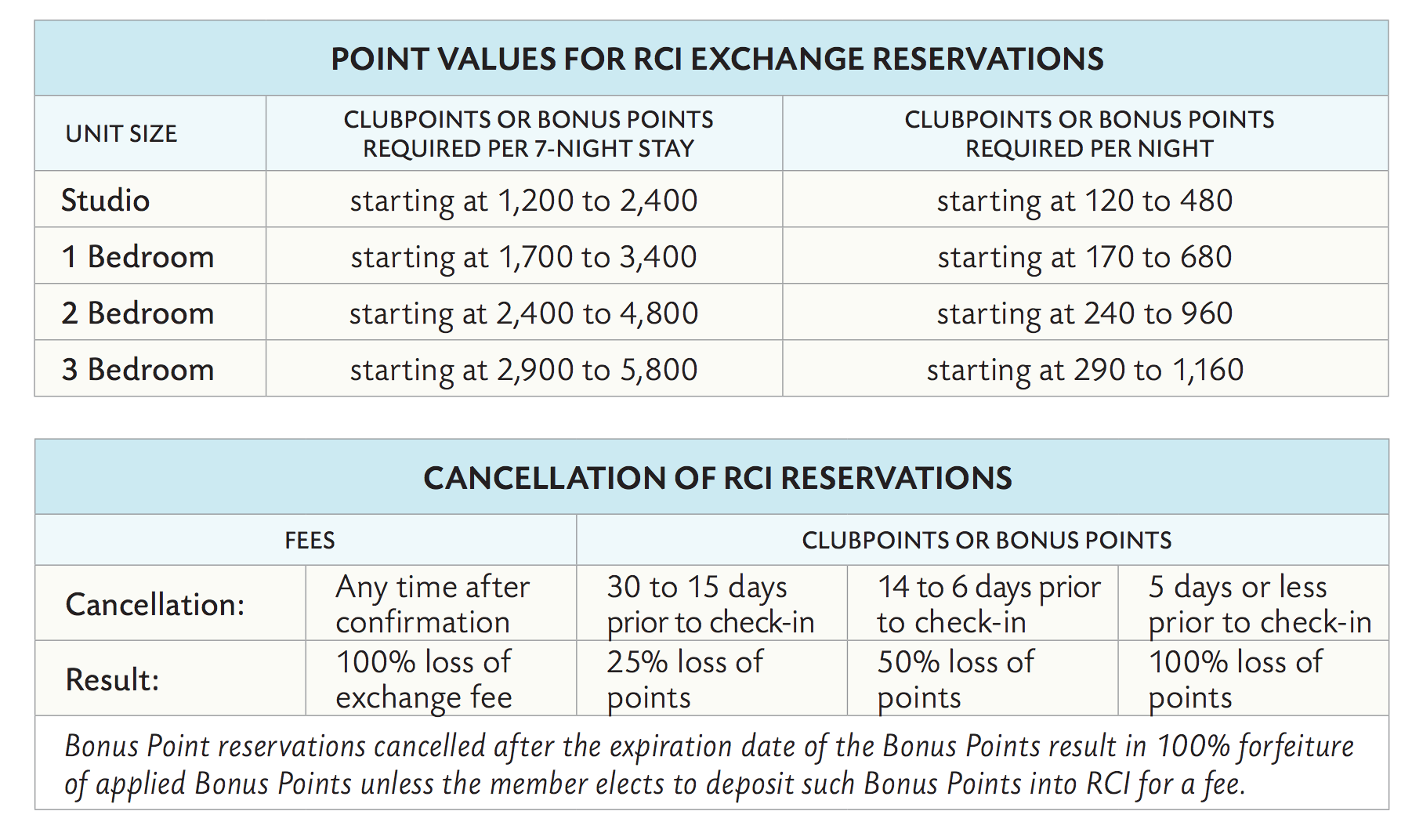While it is more versatile than the set week system, the "floating week" may not be readily available during the busiest times of the year and might need to be reserved well beforehand to make sure accessibility. The points system uses points to represent timeshare ownership, based on aspects such as resort area, size of the vacation property, and time of accessibility.
While the points system provides users with increased vacation options, there is a large https://writeablog.net/marykanbfe/it-is-also-called-trip-ownership-holiday-ownership-and-club-time-it-is-one-of disparity between the points assigned to different holiday resorts due to the abovementioned aspects involved. Timeshares are typically structured as shared deeded ownership or shared leased ownership interest. Shared deeded ownershipgives each purchaser a portion share of the physical property, corresponding to the time period purchased.
In other words, buying one week would provide a one-fifty-second (1/52) ownership interest in the system while 2 weeks would give a one-twenty-sixth (1/26) interest and so on. Shared deeded ownership interest is frequently kept in all time and can be resold to another party or willed to one's estate. Shared rented ownership interest entitles the purchaser to use a specific home for a repaired or floating week (or weeks) each year for a particular number of years.
Property transfers or resales are also more restrictive than with a deeded timeshare. As an outcome, a leased ownership interest might have a lower worth than a deeded timeshare. Based on the above, it is evident that holding a timeshare interest does not necessarily suggest "fractional ownership" of the underlying residential or commercial cancellations com property.
The principle of fractional ownership has actually also been extended to other assets, such as personal jets and rvs. According to ARDA, 2019 was the 9th straight year of development for the U.S (how to get out of timeshare). timeshare industry, with $10. 2 billion in sales and $2. 4 billion in income from its 1,580 resorts.
Some Known Questions About How Do I Get Rid Of My Timeshare.
However, in any debate of the merits of timeshares vs. Airbnb, the reality is that both have particular attributes that appeal to two divergent and enormous demographic associates. The primary appeal of Airbnb and other home-sharing sites is in their versatility and ability to offer special experiencesattributes that are treasured by the Millennials.

In addition, due to the fact that many Airbnb rentals are property in nature, the features and services discovered in timeshares may be unavailable. Timeshares usually use predictability, convenience and a host of features and activitiesall at a cost, obviously, but these are attributes often treasured by Baby Boomers. As Infant Boomers with deep pockets begin retirement, they're likely to purchase timeshares, joining the millions who already own them, as a stress-free choice to spend part of their golden years.
Nevertheless, there are some distinct drawbacks that investors need to consider prior to participating in a timeshare agreement. Most timeshares are owned by large corporations in desirable trip areas. Timeshare owners have the assurance of knowing that they can vacation in a familiar place every year without any undesirable surprises.
In comparison to a normal hotel room, a timeshare property is likely to be significantly larger and have lots of more functions, assisting in a more comfortable stay. Timeshares may therefore be suitable for individuals who prefer vacationing in a predictable setting every year, without the inconvenience of venturing into the unknown in terms of their next vacation.
For a deeded timeshare, the owner likewise needs to the in proportion share of the monthly home mortgage. As a result, the all-in costs of owning a timeshare might be quite high as compared to staying for a week in a similar resort or hotel in Have a peek at this website the exact same area without owning a timeshare.
The Only Guide for How To Rent A Timeshare From Owner
In addition, a timeshare agreement is a binding one; the owner can not leave a timeshare agreement since there is a change in his or her financial or individual scenarios. It is infamously hard to resell a timeshareassuming the agreement permits for resale in the very first placeand this absence of liquidity may be a deterrent to a prospective investor.
Timeshares tend to diminish quickly, and there is a mismatch in supply and need due to the number of timeshare owners wanting to exit their agreements. Pros Familiar place every year with no undesirable surprises Resort-like features and services Prevents the inconvenience of scheduling a new vacation each year Fools Ongoing costs can be substantial Little versatility when altering weeks or the contract Timeshares are difficult to resell Aggressive marketing practices The timeshare market is infamous for its aggressive marketing practices.
For instance, Las Vegas is filled with timeshare online marketers who lure customers to listen to an off-site timeshare presentation. In exchange for listening to their pitch, they offer rewards, such as totally free occasion tickets and complimentary hotel lodgings. The salesmen work for property developers and regularly utilize high-pressure sales techniques created to turn "nays" into "yeas." The prices designers charge are considerably more than what a buyer could understand in the secondary market, with the developer surplus paying commissions and marketing costs.
Because the timeshare market is swarming with gray locations and doubtful organization practices, it is crucial that potential timeshare buyers carry out due diligence before purchasing. The Federal Trade Commission (FTC) detailed some fundamental due diligence actions in its "Timeshares and Holiday Plans" report that should be browsed by any prospective buyer.
For those looking for a timeshare property as a getaway choice instead of as an investment, it is quite likely that the very best offers may be discovered in the secondary resale market instead of in the primary market created by trip property or resort designers.
Some Ideas on How To Rent My Timeshare You Should Know

You have actually probably found out about timeshare properties. In reality, you've probably heard something negative about them. However is owning a timeshare truly something to prevent? That's hard to state till you know what one truly is. This short article will evaluate the standard idea of owning a timeshare, how your ownership may be structured, and the benefits and drawbacks of owning one.
Each purchaser normally buys a certain duration of time in a particular system. Timeshares normally divide the residential or commercial property into one- to two-week periods. If a buyer desires a longer period, buying a number of consecutive timeshares may be a choice (if readily available). Traditional timeshare properties generally offer a set week (or weeks) in a residential or commercial property.
Some timeshares offer "versatile" or "floating" weeks. This arrangement is less stiff, and allows a buyer to select a week or weeks without a set date, however within a particular time duration (or season). The owner is then entitled to reserve his/her week each year at any time throughout that time duration (topic to availability).
Given that the high season may extend from December through March, this gives the owner a little vacation flexibility. What type of property interest you'll own if you buy a timeshare depends on the type of timeshare purchased. Timeshares are typically structured either as shared deeded ownership or shared rented ownership.
The owner gets a deed for his or her percentage of the unit, specifying when the owner can use the property. This means that with deeded ownership, numerous deeds are issued for each residential or commercial property. For instance, a condominium unit offered in one-week timeshare increments will have 52 total deeds when completely sold, one issued to each partial owner.